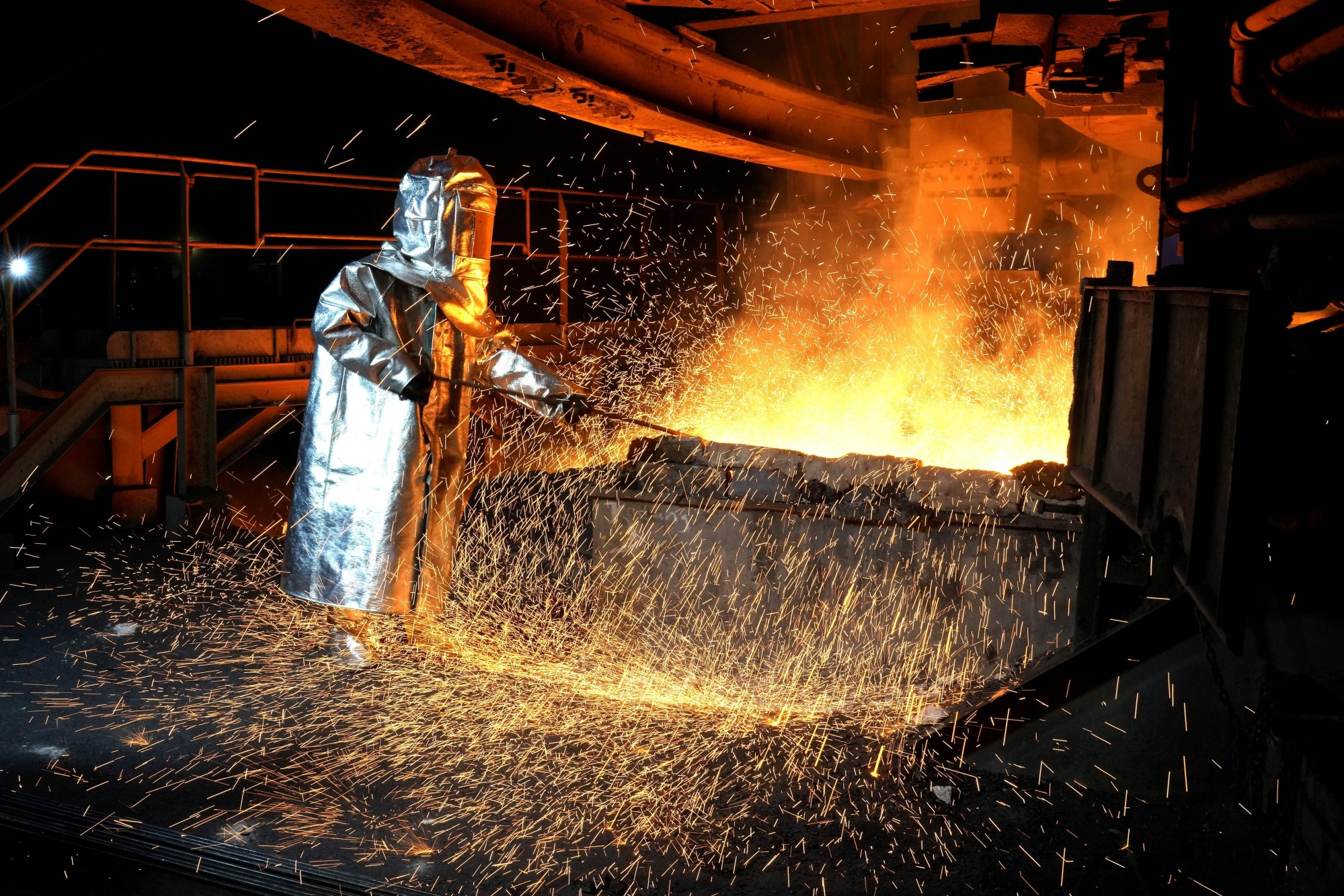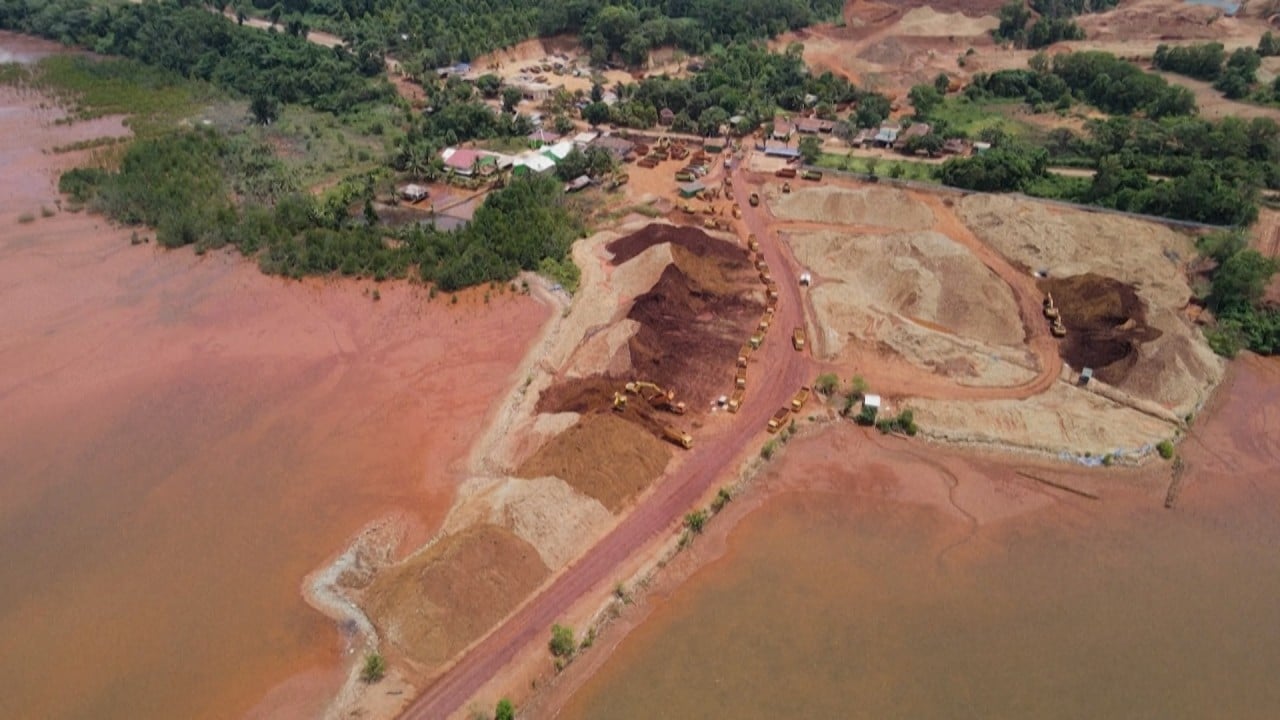
Indonesia’s nickel supply glut, slowing EV demand could ‘jeopardise’ Chinese miners
- A deluge of investments into Indonesia’s refining capacity over the past few years has led to an ‘oversupply’, experts say
- Muted EV demand due to the Ukraine war and competition from LFP batteries, which don’t require nickel, could also ‘jeopardise’ Chinese miners
The price of nickel fell by around 50 per cent in November since its year-to-date peak in January, making it the worst-performing metal on the London Metal Exchange this year.
The primary reason for this decline is the huge oversupply of the commodity caused by a deluge of investments into Indonesia’s refining capacity over the past three to four years, experts say.
“The demand for nickel is rising fast, but supply is increasing much faster, mainly due to this rise in production in Indonesia,” said Kyunghoon Kim, an associate research fellow focusing on industrial policies at the Korea Institute for International Economic Policy (KIEP).

Seeing the massive opportunity to attract investment, Indonesia banned the export of unprocessed nickel ore in 2020, aiming to establish a competitive electric vehicle (EV) and battery supply chain on its own shores.
The global expansion of the EV market also contributed to the hype, and Indonesia lured billions of dollars in foreign investment, primarily from Chinese firms including steelmakers like Tsingshan and battery behemoth CATL.
But geopolitical tensions fuelled by the Russia-Ukraine war have caused somewhat of a slowdown in EV uptake, experts say.
“The EV market has not grown as expected by the producers, especially due to the high levels of interest and inflation affecting the purchasing power in the North American and European markets,” said Wang Yanchen, managing director of the Shanghai Metals Market (SMM).
“In the past, people were worried about not having enough nickel to meet the growing demands of the EV industry, so that drove a lot of investment into the area,” he said. “But now, we’re seeing an oversupply.”
In 2022, Indonesia experienced a staggering 50 per cent increase in nickel ore production, as reported by the US Geological Survey.
According to the International Nickel Studies Group, the surplus in the global nickel market has doubled from last year, and is expected to widen to 239,000 metric tons in 2024, up from 223,000 tons this year.
China accounts for around 60-70 per cent of all investments in Indonesia’s nickel industry, so it’s unsurprising that these companies would feel the impact of the price drop, said Ahmad Zuhdi Dwi Kusuma, a mining industry analyst from Indonesia’s state-owned lender Bank Mandiri.
“As anticipated, with falling prices, the financial performance of Chinese companies investing in Indonesia’s nickel mining will be jeopardised,” he said.
In September, Chinese state-owned Baowu Steel Group put a pause on a US$4 billion deal to secure nickel assets in Indonesia from Tsinghan, following more than a year of negotiations, according to a report by Caixin.
Tesla faces long road to success in India even as New Delhi weighs EV tax cuts
But experts also highlight that the challenges caused by low nickel prices will only be in the short term.
Companies like Baowu might put a hold on their investment and come back when nickel prices stabilise, said Wang from the SMM.
“Indonesia will still attract investors in the long term, they are likely just waiting for the right time and better prices,” he said. “The demand for raw materials like nickel from the Chinese stainless steel and battery companies will still need to be met in the future.”
To address the supply glut, experts suggest that Indonesia could consider implementing policy changes, such as temporarily suspending the granting of mining rights to new players, prioritising investments from battery mining companies, and restricting access to reserves for stainless steel companies.
“Indonesia can make efforts to address the supply side, for example, by pausing the expansion of intermediate nickel production processing and limiting the number of smelters,” said Zuhdi from Bank Mandiri.
Kim from KIEP believed that concerns surrounding threats to Chinese miners from fluctuating nickel prices might be “over-exaggerated”.
“Are miners and refineries concerned with the declining nickel prices? Of course,” he said. “However, their investment horizon is long … even after two or three consecutive years of overproduction, the nickel price will be close to the long-term average.”
Kim added that demand for nickel would continue to increase for the EV market, and leading nickel producers would make adjustments to their production output to reflect the price changes.

Shifting demands
Nickel is also facing competition from a new type of battery, which is largely getting traction among manufacturers in China, known as lithium ferrophosphate (LFP) batteries, which do not require nickel.
“The rise of LFP batteries is a fascinating phenomenon. Its market share in EV batteries has increased from under 10 per cent in 2018 to around 30 per cent in 2022,” Kim said.
While it is expected that the expansion of LFP production might weaken some demand for nickel, Kim says that there will be enough room in the EV market for demand for both types of batteries to grow.
“[Considering] the massive expansion of the EV market, demand for nickel in EV battery production will see huge amounts of growth in the next decade followed by resilient, more stable growth in the following two decades,” he said.
In Southeast Asia’s EV race, domestic markets face a long and winding road
Wang said the battery industry was a fast-moving one, and new technologies and developments “can totally transform the raw material demand”.
“LFP is definitely gaining more market share in China. In both the EV market and for energy storage,” he said.
However, he noted demand for nickel should not be discounted since nickel-based batteries offered more energy density than LFP batteries, and were more popular among high-end EV companies, particularly those in North America and Europe.
“The geopolitical issues and their impact on the supply chains are a key factor impacting the EV industry, but it’s hard to forecast the results of that,” Wang said. “Once economic situations improve, the purchasing power of consumers will return and demand for EVs will continue to grow.”


